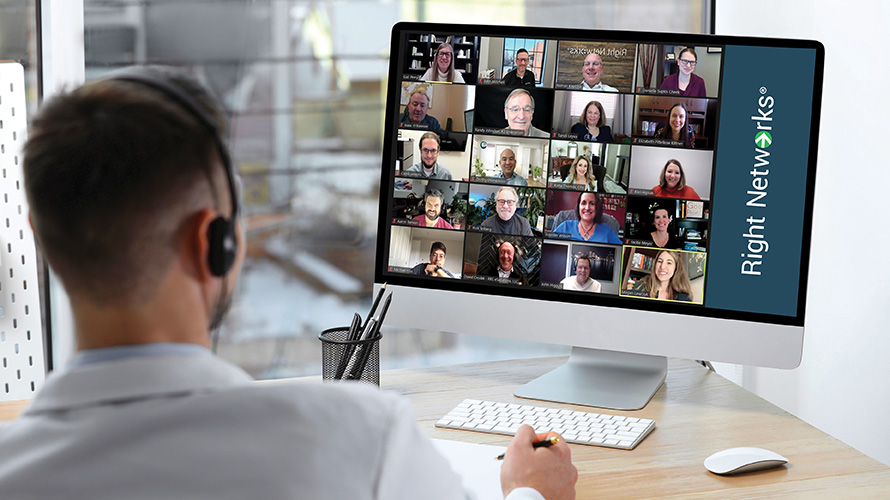2022 CPA Practice Advisor Thought Leader Meeting: 6 Takeaways for Firms
This past week, I participated in CPA Practice Advisor’s annual Thought Leader meeting alongside CPAPA’s “40 Under 40” top public accountants, educators and thought leaders.
This meeting is designed to aggregate insights on current topics of interest from both established industry leaders and up-and-comers within the profession.
Key insights and helpful, timely takeaways from the meeting are summarized below.
1. Put staff and firm culture first to increase retention.
Your firm’s broad culture, which includes how you handle staff, is increasingly emerging as a necessary and firm-defining element of the business model. Firms that have staffing and culture challenges will find that the issue will only get worse if it’s not proactively addressed now.
The staffing shortage has been exacerbated by multiple factors.
COVID blasted a spotlight on new remote work possibilities. Then, the Great Resignation offered staff more opportunities to change jobs or start their own businesses. This occurred in mass with those who were highly unsatisfied with their current employer.
When combined with increased salary demands due to this year’s inflation surge, firms will need to keep salary parity just to maintain current staffing levels.
One meeting participant noted that today’s risk of losing good employees is much higher at mediocre firms than in those with a great culture.
Accounting firms with great culture, career growth opportunities, and equitable pay will increasingly attract the best employees resulting in a noticeable negative impact on staffing in legacy firms that believe they can go back to the status quo. Firms should make focusing on this topic a key priority.
2. Are new accounting applications worth the hype?
Over the past decade, lackadaisical development of and updates to existing accounting applications has blown open the door for new vendors to release better, more focused apps that solve common pain points by transforming how work gets done.
The advent of multiple new vendors has created a “wild west” environment, overwhelming most accountants with too many choices. This has also muddied the water in terms of differentiating what tools are functional and transformational versus overhyped and underperforming.
In an oversaturated application and software marketplace, accounting firms need help choosing, then implementing, new technology solutions. Their demand for practical guidance will lead to an emergence of non-traditional, trusted resources and specialized consultants within associations.
3. Virtual CPE courses prove more convenient and cost-effective.
During the era of virtual learning, many felt—particularly millennials—that earning CPE virtually was both far more convenient and cost-effective than attending onsite events.
One participant quoted a survey that reported about 30 percent of accountants said they would no longer attend live CPE. In fact, CPE is no longer the main driver to attend live events and has been eclipsed by the following top attractors:
- Networking
- Evaluating new products
- Experiencing a new destination
Hybrid conferences (live with virtual broadcasting) will probably continue for the near term based on the success many vendors experienced. However, for the longer term, the decision to showcase at these events will likely depend on the economic benefits.
Conference planners need to adjust their traditional models to promote meaningful interactions between vendors and participants. Scheduling more free time during events and creating an agenda with a mix of exhilarating and practical educational sessions will attract more participation from attendees.
See a list of Right Networks’ upcoming virtual and on-premises events.
4. When it comes to content—quality beats quantity every time.
During the height of COVID, the volume of virtual content like webinars, podcasts, articles and blogs exploded. For many, it was a kneejerk response, leading to the creation of bland, minimally useful “junk” content.
Content creators will have to step up their game to rise above the swamp of mediocrity, as well as to differentiate their business and brand. The goal should always be to provide highly valued, timely and education-based content. It was also suggested that influencers use a single media format and interact with intention, rather than try to flood the market with uninspired and unhelpful social posts or content.
When developing new content for CPAs, make sure it has obvious, specific takeaways that the reader, listener or viewer can practically implement or benefit from.
5. New opportunities for ESG reporting…maybe?
Environmental, Social and Governance (ESG) analysis and reporting was another topic discussed—highlighted as a new opportunity for accounting professionals to develop assurance services around.
However, there was a significant divergence in opinions as to whether these items could be specifically measured or properly reported on. One participant pointed out that Volkswagen had obtained the highest environmental and sustainability certification the same year that “diesel gate” occurred.
Another discussed how “greenwashing” (the spinning of information to make a company look environmentally conscious) is happening more and more—making these types of initiatives suspect and elevating the risk and the liability firms could incur if they pursue these types of assurance services.
Because this topic is currently “muddied,” leadership should make a concerted effort to become aware of the ESG discussion (as well as diversity, equity and inclusion) so they can listen with empathy and brainstorm solutions when their staff brings up such issues.
6. Not enough people understand the importance of security—still.
There was also a significant discussion on cybersecurity. While the threat impacts everyone, many are still not taking it seriously.
In addition to mandating ongoing security and threat awareness training, accounting firms must work with external partners to implement solutions and monitor cyber activities to minimize the risk of falling victim to cybercriminals.
Firms must consider the enormity of risk here. When a data breach occurs, hackers no longer stop at making the business pay ransom. Cybercriminals are further cashing in by extorting the firm’s clients and re-selling or auctioning troves of data. And in some cases, hackers go back to the firm and insist ransom be paid again, despite how much was paid initially.
Accounting firms should outsource their security maintenance and monitoring to experienced third parties and enterprise-level cloud providers that can provide continuous coverage and expertise.
In Conclusion, Secure Your Firm.
I hope you enjoyed a peek inside what the top firm thought leaders discussed at this year’s meeting. Hopefully, you’ve been provided with a few takeaways of your own.
But if there’s nothing else you take away from this post—check up on your firm’s security. The enormous amount of financial data, coupled with inadequate security policies, make your firm a prime target for cybercriminals.
Increase your firm’s security to “bank-level” today. Learn more about the security benefits of accounting and tax cloud hosting.


